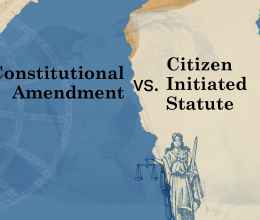Despite broad consensus that Cuyahoga County’s bail system is in desperate need of reform, early bit of momentum from elected officials fizzled in 2020. Aside from pilot pretrial program at the Cleveland municipal level in which Judge Michelle Earley integrated call and text reminders of court dates and no jail time for the majority of low-level, non-violent offenses, little progress was made. With more than 60% of the felony charges in the common pleas court fed from the other 13 municipalities, the lack of county-wide solutions or meaningful coordination by county stakeholders means the cash bail system continues to deprive thousands of residents of freedom well before their court date.
In early 2020, the Northeast Ohio Action Team, an organizing arm of the ACLU of Ohio in Cleveland, embarked on a campaign to transform local pretrial policies. We continuously heard of chronic mismanagement of the jail and the flagrant injustices emblematic of most people’s recounts of their experiences behind Justice Center walls, and we learned the price of imprisonment extends far beyond the money spent to hold someone in jail. For those released on personal recognizance (simply a written guarantee to show up to court), GPS surveillance in the form of an electronic ankle monitor is frequently assigned. We heard from those saddled by exorbitant costs of monitoring ($8 per day or $56 per week) and other conditions assigned often without any relevance to the case or individual circumstances.
Electronic monitoring starves one’s access to justice, legal resources, and due process. Similar to pretrial detention, individuals subject to this type of intrusive surveillance are more likely to take a plea to be released from their monitors. Small violations of the rules of the program, which may be a result of tech failures like losing a signal, can land a loved one back in jail or affect final sentencing decisions. It underlines the point we all instinctively know: the nature of surveillance-based conditioning ultimately sets up people to fail.
Electronic monitoring is a jail of a different form. One that reinforces the embedded racism of Cleveland’s criminal legal system while parasitically expanding policing into our county’s Black, brown, and working-class communities.
To send a clear message to Administrative Judge Sheehan, we sought to demonstrate the broad constituent support for clear and improved pretrial policies. On Friday, December 11th Northeast Ohio Action Team concluded this local campaign when we ‘virtually dropped’ the 1,000+ petitions from Cuyahoga County residents urging Judge Sheehan to usher in an era of bail reform once and for all.
We need redemptive reforms while exploring all possibilities of release before considering electronic monitoring as the default. The ACLU of Ohio has called for procedural safeguards for setting bail, speedy bail determinations, and wider access to services and supports to ensure court reappearance – models already proven successful by the Bail Project. Pretrial services should help people return to court, rather than create a system of control akin to parole or probation.
We need decarceration as the new norm for Cuyahoga County, a county whose officials have a distinct responsibility to safely reduce the number of people in jail after decades of operational mismanagement, constitutional violations, and deteriorating jail conditions that continue to take lives behind bars.
At the start of the pandemic, the county saw massive jail reductions through the expansion of cite-and-release policies (officers giving citations for low-level, nonviolent offenses instead of jail time) and the release of some pretrial defendants via written guarantee they return to court. These early efforts both halted the spread of COVID-19 and garnered national praise. However, the county’s decision to offer mass plea hearings – a move intended as a means to accelerate court processing – still left defendants pressured to take a guilty plea as a means to leave a jail cell on the verge of a COVID-outbreak.
Cuyahoga County criminal legal system deserves reformation, or transformation, that lasts longer than a season.








